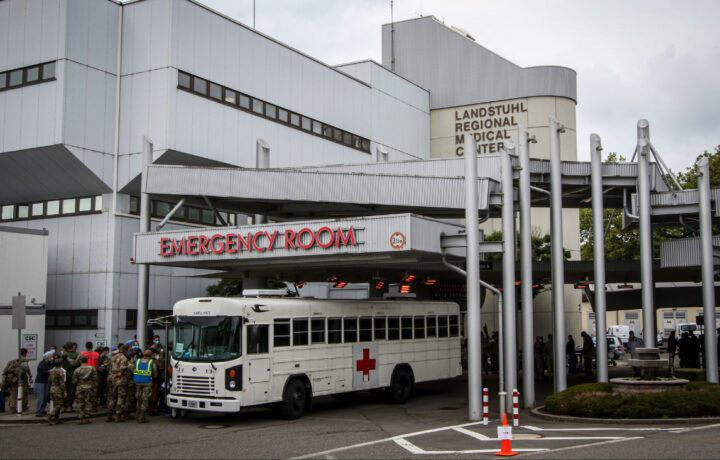Landstuhl Regional Medical Center (LRMC) is the U.S. Army’s flagship medical center in Germany. Located near Ramstein Air Base, their primary mission is to support Active-Duty Service Members in peace and at war, providing high-quality Level II trauma center care. Landstuhl has an estimated 65-100 beds and is the largest American hospital outside the United States.
Recently, a group of Ukrainian Army soldiers wounded by the Russian military arrived at LRMC needing surgery. Most of the wounded soldiers arriving at LRMC were American, with the hospital treating a few volunteer fighters from Australia, the UK, and New Zealand.
American Volunteers and Their Involvement
During the initial phases in 2022, hundreds of American military veterans bolted to help Ukraine defend against the Russian onslaught. Today, a few hundred are still on the ground in Ukraine, contracting with the Ukrainian national army and volunteering with local militias.
When wounded, these American combatants had to rely on Ukrainian hospitals and Non-Governmental Organizations for medical help. American soldiers who have been interviewed state that Ukraine’s hospitals are under tremendous strain, and medical care in their Soviet-era hospitals and clinics was spotty. Sanitation, antibiotics, anesthesia, and basic care were well below U.S. standards. Surgery was difficult to find and often reserved for the most serious cases.
Pentagon’s Intervention and Policy Change
However, last year the Pentagon offered the same care it gives to American active-duty troops. Under a new Defense Department policy, LRMC allowed for the treatment of up to 18 wounded members of the Ukrainian forces at any given time. At that time a United States European Command (EUCOM) spokesperson stated, “Secretary Austin recently approved the use of Landstuhl Regional Medical Center in Germany for the medical treatment of Ukrainian service members.”
Even though the U.S. still discourages Americans from heading to Ukraine, some go anyway. The Defense Department officially stated that if they become wounded and are transported to Landstuhl, LRMC is not going to turn them away.
A New Approach to Treating Wounded Ukrainian Fighters
Even with Landstuhl being authorized to treat combat casualties from Ukraine for over a year, very few Ukrainian fighters arrived. This past summer, former Green Beret medic David Bramlette, working for a humanitarian aid foundation evacuating wounded from Ukraine, began moving patients to LRMC.
In August, contacting the European Multinational Medical Coordination Center while searching for hospital beds for wounded fighters, Bramlette was directed to Landstuhl. After confirming the LRMC capability, he described the discovery as the best day he had in Ukraine. He began moving patients by ambulances on an arduous journey through Poland to LRMC in Germany. Since August, three more groups of wounded have joined them.
LRMC’s Commitment and Readiness
Mr. Sanchez, the LRMC spokesman said the hospital was prepared to treat more wounded, and “remains postured and ready to support U.S. Armed Forces, NATO member countries, and other allies and partners as directed.” Some believe the situation benefits not only the wounded, but also military doctors gaining experience through the treatment of complex battle wounds. There are, of course, geopolitical risks with this arrangement. Russia continually warns the U.S. about increased involvement and the potential for broader war.
Several members of Congress, including Representative Jason Crow, Democrat of Colorado, have been pushing the military to open the hospital to more wounded Ukrainian fighters, stating 18 casualties is too limiting. A former Army Ranger, Crow stated, “Landstuhl is one of the pre-eminent medical facilities in the military. The doctors and nurses there have unique capabilities to treat battlefield wounds.”
In the meantime, a replacement hospital for LRMC will be completed in 2027 at Rhine Ordnance Barracks (ROB). With more than 968,000 square feet, the new hospital will have expansion capability for emergencies. Adjacent to Ramstein, transportation time to ROB for patients flown to the airbase will be reduced to five minutes.



